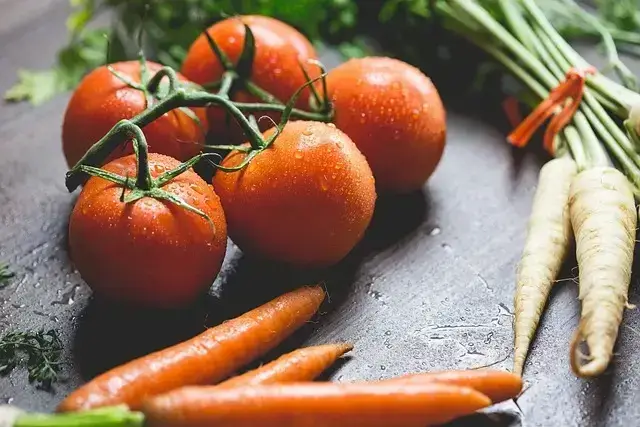- 1.1 What does Organic mean?
- 1.2 Organic vs non-Organic
- 1.3 How to check whether it is organic or not
- 1.4 Why Organic Food?
- 1.5 Benefits of Organic Farming
- 1.6 Conclusion
What Does Organic Mean?
Whether the food is organic or not can be classified according to the way they are produced. Organic food is produced without the use of synthetic fertilizers, pesticides, herbicides, hormones, antibiotics, or genetically modified organisms. And are way more healthy than conventionally grown food.
It is grown and processed using methods that are harmonious with the environment, such as crop rotation, sustainable agriculture practices, and natural fertilizers. Organic foods are often more expensive than their non-organic counterparts because of the extra labor and cost involved in producing them.
Organic vs Non-Organic
Organically grown food. | Conventionally grown food. |
Grown using natural fertilizers, manure, and compost. | Grown with the use of synthetic and chemical fertilizers. |
Weeds are controlled naturally by methods like crop rotation and hand weeding. | Weeds in this are controlled by chemical herbicides. |
Pests are controlled using natural methods and naturally derived pesticides. | Pests are controlled with synthetic pesticides. |
How To Check Whether It is Organic Or Not
The US department of agriculture (USDA) has initiated a certification program for organic food in which the food has to meet all the set standards according to USDA. These standards are about how the food is grown, processed, and handled. Any product which is labeled as an organic product in the description or packaging is organic. It must be USDA certified and the producer of organic food must use an official organic seal.
Benefits Of Organic Farming
Organic food is better for the environment
Organic food is healthy for the environment because it is grown without the use of chemical fertilizers, pesticides, and other synthetic inputs, which can pollute the environment.
Organic farmers also use sustainable farming techniques that minimize soil erosion, conserve water, and reduce pollution. Additionally, organic food production often yields healthier soil, which can help to sequester carbon and reduce greenhouse gas emissions.
Organic produce contains a lower level of pesticides
Sustainable farming methods are used in organic farming. These methods do not harm the environment rather they minimize soil erosion and pollution. Organic or natural manure and pesticides are used to grow organic produce. Thus, the chance of remains of pesticides on the organic produce is very less. And also, it contains a lower level of pesticides due to its cultivating process.
Organic food is more nutritious and tastier
Organic food is way more nutritious, healthy, and tasty as it does not contain preservatives to make it long-lasting. Studies have also shown that the nutritious value present in organic type of food is higher in comparison to non-organic food.
Again, it is because of the method of growing them. Because the inclusion of harmful chemicals leads to the loss of soil’s nutritious value.
But on the other side, in organic farming, the use of chemical substances is forbidden that maintain a higher level of nutrients in the soil and the food as well.
Conclusion
Organic food is produced without the use of synthetic pesticides and fertilizers and is free from genetic modification. They are also more nutritious than conventionally grown food, as organic farmers prioritize soil health and nutrient density in their products. Thus, people are more and more tending towards it and embracing organic products in their lifestyles.


Pingback: Why Are Organic Foods Expensive | Organic Monk